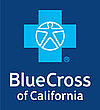 Chubb, which claims to insure 90% of the law firms listed in The American Lawyer’s AM Law 200, seems to have tripped over itself in first trying to stop its insured from blogging, and is now trying to draw a distinction between “informational” and “advisory” blogs.
Chubb, which claims to insure 90% of the law firms listed in The American Lawyer’s AM Law 200, seems to have tripped over itself in first trying to stop its insured from blogging, and is now trying to draw a distinction between “informational” and “advisory” blogs.
What the difference exactly is, escapes me. And that is because there are an unlimited number of shades of gray within this constantly morphing space.
Here are the definitions they are trying to create in their own bumbling way:
- An informational blog presents information or offers a forum for discussing issues in a neutral, unbiased way. This type of blog offers information similar to that found in an article or presented by an individual in a seminar — informational blogs do not provide advice to a specific individual on a unique matter. Typically, these blogs pose a minimal level of risk from Chubb’s underwriting perspective.
- In an advisory blog, however, a law firm offers advice. By its nature, then, it increases the risk of a malpractice lawsuit against the firm. An advisory blog can potentially establish an attorney-client relationship, possibly bypassing such safeguards as determining the suitability of a potential client and checking for possible conflicts of interest. As always, Chubb’s underwriters will evaluate each submission on its own merits.
Now in one recent post of mine I discussed the tough legal issues that any individual claimant faced in regard to the tainted pet food in the news. Is that “informational” or “advisory?” (I would call it my opinion.) The news story is certainly a unique matter.
And if I decide to rip into Chubb for trying to draw a line that doesn’t really exist, does that mean I am not discussing it in a neutral and unbiased way and therefore the blog is now outside their coverage? If I mock them for failing to have counsel review this new policy and I advise them to get it reviewed — for no attorneys in their right mind would ever try to draw such a line, so it stands to reason it wasn’t reviewed — is my posting now advisory instead of informational? If I strongly suggest it was foolish to do this, are my comments advisory or informational?
And how an “advisory blog” establishes an attorney-client relationship, by the way, is beyond me. To establish a relationship one needs to have one-to-one communications, not just an opinion shouted to the world. (I wonder if Chubb considers that comment of mine informational or advisory, regardless of whether it is right or wrong?)
In trying to define the legal blogosphere and place these ever-changing formats into neat categories, Chubb is creating a problem by trying to graft static definitions onto a dynamic beast.
If this is the place that Chubb wants to go, then law bloggers who have them as their insurer need to bring their business elsewhere.
The only thing Chubb seems to have done right here is place a bulls-eye on its back for ridicule.
(hat tip to Kevin O’Keefe at LexBlog, who also has a copy of the Chubb press release)
Addendum: Rush Nigut has a great response at Kevin’s blog:
Chubb is trying to save face. The company realizes it made a mistake with its blanket denial and the press release is a way to say, “We really didn’t mean we wouldn’t cover law firms that have blogs . . . you must have misunderstood us.”
2nd Addendum: Robert Ambrogi at the Law.Com Blog Network chips in more with: Insurer: ‘We Do Cover Blogs, Sort Of’



